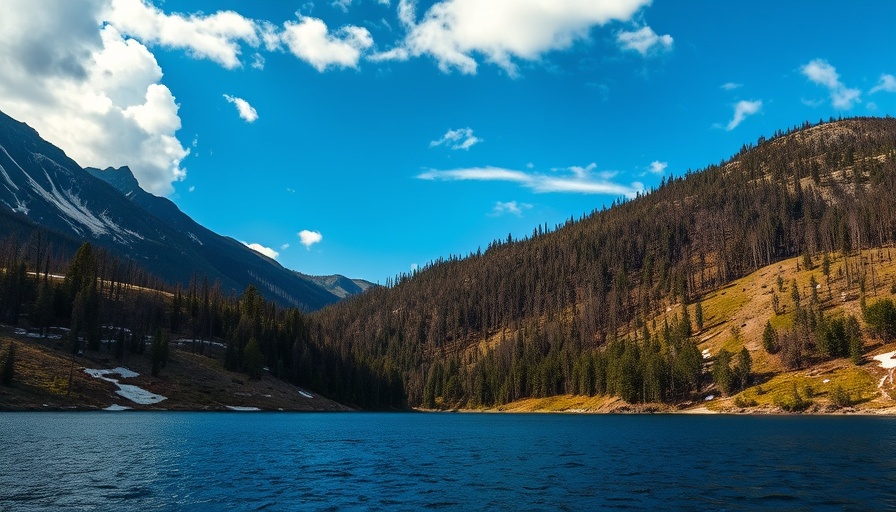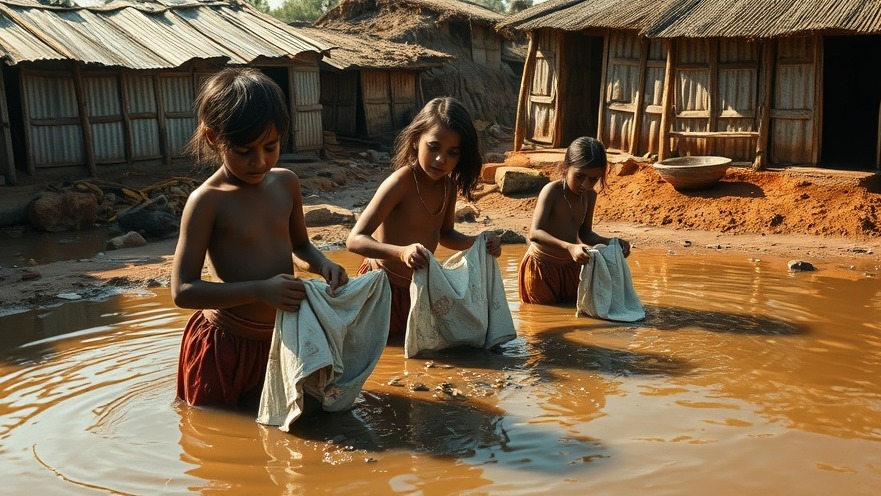
The Lingering Effects of Wildfires on Water Quality
In the wake of devastating wildfires, the aftermath often extends beyond the charred landscapes to affect our water sources profoundly. A recent study led by the University of Colorado Boulder reveals that pollutants from wildfires can contaminate local waterways for an astonishing eight years post-event. This groundbreaking research analyzed over 100,000 samples from 538 watersheds across the western United States, shedding light on alarming trends in water quality that boutique hospitality professionals should heed.
Understanding Water Contamination Post-Wildfire
The study, spearheaded by the Cooperative Institute for Research in Environmental Sciences (CIRES), uncovered that elements like nitrogen and sediment often spike for up to eight years after wildfires occur. Organic carbon and phosphorus, too, present significant increases within a one- to five-year timeframe following these ecological disasters. Such findings underline the importance of comprehending how wildfire residues disrupt local ecosystems and water purity.
Local Conditions Influence Water Quality
As the effects of fire on watersheds can vary significantly based on local conditions, the research emphasizes that elevation in pollutants is not uniform across all areas. For example, a fire occurring upstream might have a lesser impact than one situated close to water bodies. With significant variability noted in the contamination levels—ranging from 19 to 286 times higher for sediment in some waters compared to pre-fire conditions—it's crucial for hospitality professionals to consider how their locations are affected by such natural events.
The Link Between Wildfires and Eco-Conscious Business
Boutique hospitality professionals, particularly those committed to eco-conscious practices, must be aware of these revelations. High levels of water contamination not only threaten local biodiversity and the health of ecosystems but can also impact the perception and viability of their businesses. Locally sourced water is often a cornerstone of eco-lodging and sustainable hospitality; understanding these environmental changes can inform better water management and sustainable practices in business operations.
Addressing Water Management Challenges
With the continuation of contaminants long after wildfires, local water management teams are urged to implement adaptive strategies. This includes considering fire history when sourcing water for hospitality operations. Investment in filtration and treatment platforms could alleviate some issues but also stresses the need for comprehensive policy adjustments at the municipal and state levels that accommodate these long-term impacts on water systems.
Wildfire Impact on Surrounding Ecosystems
The repercussions of delayed water contamination extend to aquatic life as well. Increased nitrogen can lead to algal blooms that deplete oxygen levels, harming fish and other wildlife necessary for balanced ecosystems. Additionally, the interplay of pollutants can affect pollinators like bees, whose vitality contributes to the overall health of the landscape that boutique accommodations often rely upon. Understanding this dynamic can provide insights into managing not just water quality but also fostering a harmonious environment for guests.
Future Trends and Considerations for Eco-Conscious Lodging
As climate change continues to exacerbate the frequency and intensity of wildfires, it is imperative for hospitality professionals to remain vigilant. Adapting to these emerging realities involves integrating environmental awareness into business models. This may mean exploring alternatives, such as utilizing rainwater harvesting systems to cut down reliance on potentially contaminated sources and cultivating microplastics awareness in operational practices.
Ultimately, as industry stewards of sustainability, staying informed about wildfire impacts is essential to protect not just business interests but also the pristine natural resources that characterize eco-tourism. With the right information and strategic planning, it's possible to navigate the challenges posed by changing environmental landscapes effectively.
 Add Row
Add Row  Add
Add 




Write A Comment